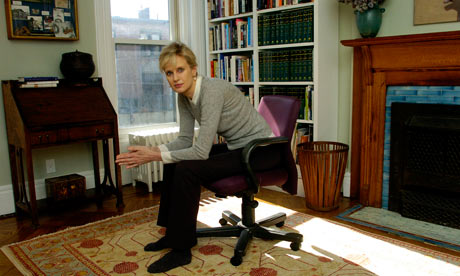What got you started?
A summer night in Reykjavik. I was 13 years old, and had been reading David Copperfield. I remember walking to the window and looking out at the city; it was still light, though it must have been one in the morning. I thought to myself, "If this is what novels are, it's what I want to do."
What was your big breakthrough?
I'd been writing poems for many years, but most of them I didn't like. Then, when I was 23, I wrote one I did like, sent it to the Paris Review – the highest publication I could think of – and they accepted it. No other moment in my literary life has quite come close to that.
You've often written about science. Should literature make more effort to understand science – and vice versa?
I deeply believe conversations among the disciplines can break open new kinds of thinking. Since I published The Shaking Woman: A History of My Nerves, I've been asked to speak at a number of neuroscience and psychoanalysis conferences. Recently, a neuroscientist friend was asked why he'd asked a novelist to speak to his department. He said, "Well, Siri is like yeast: she makes things grow." I'm very happy to be a kind of yeast.
What's the greatest myth about writing a book?
There's a myth of control. Writers are in control of editing processes – making a sentence better, cutting out a paragraph. But the initial outpouring has very little to do with conscious control or manipulation.
What song would work as the soundtrack to your life?
Bach's St Matthew Passion. Not because I have lived my love with that kind of grandeur, but because my inner-being responds to it so deeply.
What's the biggest threat to literature?
That it becomes, in the eyes of culture, a highly feminised form. Far more women read fiction than men, and because of this, novels have become marginalised as serious texts. I don't think it's a conscious, hostile act, but an unconscious feeling that seriousness in literature belongs to men, not women. However, I'm optimistic that if we bring this into the open, many people will realise they are suffering from a prejudice that they could very easily correct.
Do you read your reviews?
No. I hear about them, though – especially if a book has been horribly trashed. The publisher feels an obligation to tell you in case you go to a dinner party and people are looking at you cross-eyed.
What's your greatest ambition?
Every time I finish a book, I say to an imaginary god that I do not believe in, "Please let me live to write another one."
In short
Born: Northfield, Minnesota, 1955.
Career: Has published five novels, including What I Loved and The Summer Without Men, and several books of poetry, essays and non-fiction. Is appearing on Friday 13 July in the Literary Arena at Latitude 2012.
High point: "Finishing What I Loved after six years. It really felt like I'd broken through something in myself."
Low point: "Feeling, in interviews, that I haven't really been understood."











